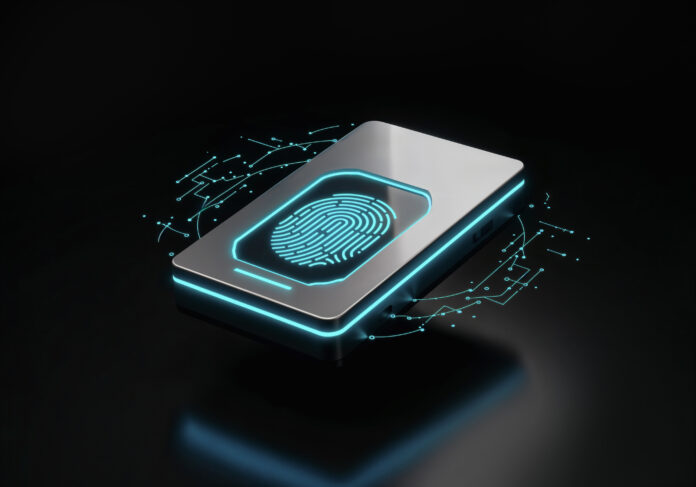
Today’s solo entrepreneurs lean on artificial intelligence more and more. AI-driven marketing platforms and customer support chatbots give these 19 million US home-based entrepreneurs the solutions they desperately need to compete, but there’s a price to pay.
“Reliance on these AI-driven tools is unavoidable, but it comes with an escalating threat,” observes Ken Griggs, the creator of not.bot. “You are charged with protecting your customers’ privacy in a world where data has become the ultimate currency. And trust me, they notice the choices you make.” The solution is an identity verification process that offers authentication along with fraud prevention.
Hidden Privacy Risks and Home Businesses’ Growing Reliance on AI Call for Online Identity Verification Solutions
Today’s AI privacy protection tools level the playing field for solo entrepreneurs. They equip home-based businesses with capabilities once only enjoyed by the mega corporations.
But as small businesses rush to adopt AI, many unknowingly open the door to invasive data practices. Why? These AI privacy protection platforms frequently require access to customer data to function effectively. That data may be tracked or stored indefinitely. It can even be sold to third parties without explicit consent.
Griggs sums up the reality: “Data offers a unique competitive advantage. Unfortunately, this leads many to push the boundaries of privacy and copyright. They aggressively gather as much data as possible, even at an ethical cost.”
Griggs believes this approach has reached its limits. Consumers are increasingly unsettled by invasive tracking. They feel exposed every time an online search triggers a flood of targeted ads.
“The consequences of unchecked data collection are mounting,” notes Griggs. “Take Target’s algorithm that identified a teenager’s pregnancy and sent coupons for baby products before her family even knew. This is just one example of how AI’s appetite for data can lead to ethical privacy breaches. Customers are increasingly aware of being surveilled, and the brands that do not respect privacy risk losing credibility.”
Ken Griggs’ Inspiration for the Privacy Protection Software and Digital Identity Verification Offered by not.bot
Griggs’ journey to privacy innovation actually began in the global effort to combat climate change. While working at a blockchain company, he saw firsthand the complexities of national governments trying to share verified climate project data without compromising sovereignty or control.
Previous attempts, like the Kyoto Protocol, failed because countries resisted logging into a single server that was managed by a centralized authority. They wanted to retain control of the data they contributed. Griggs’ solution was the Climate Action Data Trust (CAD Trust), a bottom-up ecosystem powered by blockchain that allowed countries to keep their own data but share and verify it collectively, in accordance with Article 6 of the Paris Agreement. This decentralized system now holds most of the world’s climate project data.
The success sparked a radical idea for Griggs. He began to envision a world where everyday individuals and businesses could interact and prove their identity online in a similarly decentralized way, without governments or tech giants mediating their digital footprints. This kind of digital identity verification could protect privacy rather than erode it.
This inspiration led to the creation of not.bot, a privacy solution for home-based entrepreneurs that offers real digital identity verification without collecting or storing personal data. The tech is built on cutting-edge cryptographic technologies and developed alongside Defense Department-level computing experts.
How not.bot’s Identity Verification Software Empowers Solo Entrepreneurs with Enterprise-level Privacy and Prevents Fraud
Not.bot enables users to prove their digital identity by attaching digital stickers to their online content or communications. These QR and JAB codes use cutting-edge cryptography to offer digital verification and prove ownership without exposing any personal data. The decentralized, privacy-first design means that customers can verify their identity as they join a platform or make a purchase without personal information leaving their device.
Entrepreneurs appreciate this approach because it offers unparalleled security while mitigating fraud risk, identity theft, and data breaches. As Griggs explains: “Our privacy-first technology allows you to interact confidently with your customers without creating a honeypot of sensitive data that hackers would love to get their hands on. If even Google can be hacked, then we have to assume every company can and will be hacked. And if your company has personal information, it will be exposed. The only viable solution is not to store user data in the first place.”
Trust is a two-way street. In addition to allowing a home-based business owner to verify their customers’ digital identity, not.bot also enables entrepreneurs to prove exactly who they are to consumers.
“Verifying your communication is critical in a world infiltrated by bots and deepfakes,” says Griggs. “When your customers see your digital signature, they will know a social media post or business email came directly from you.”
Digital Identity Verification Benefits: Future-proofing Home Businesses Against AI-driven Privacy Breaches with Digital ID
Griggs foresees a pendulum swing in entrepreneurship, from data exploitation to ethical data stewardship. The next wave of successful companies will be those that align success with consumer trust and responsible data use.
Customers want to know that the person they’re interacting with is real, not a bot or an imposter, and that their information is safe. Not.bot’s private, math-based digital signature system offers a practical way to meet these expectations now and in the years ahead.
“As a home-based business owner, you have a unique opportunity to lead by example,” concludes Griggs. “When you adopt privacy-first technology, you empower authentic connections with your customers. Concealed data harvesting in popular AI privacy protection tools and devastating privacy breaches attack online privacy from all angles. By preserving digital identity verification, you safeguard your most valuable asset. That’s not data; it’s consumer trust. Protect your customers and your future by making privacy a pillar of your strategy.”
Find a Home-Based Business to Start-Up >>> Hundreds of Business Listings.

















































